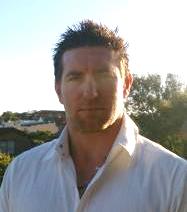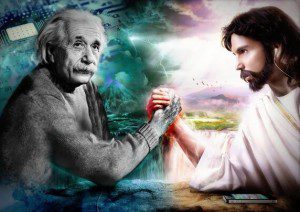Guest Writer for Wake Up World
Since humanity’s conception, we have been split into two debating parties: those who believe that reality is only made of matter and those who believe there’s something else. In more recent times, this great philosophical debate has generally been called Materialism vs. Idealism, or Atheism vs. Religion. Or put another way, Matter vs. Spirit.
Materialists were few and far between back in the ancient days. Most people believed in some form of God, afterlife or higher consciousness through their religious or spiritual disciplines. Yet the birth and amplification of the scientific revolution – which focused on physical phenomena – ensured that the knowledge of this area grew, along with its applied technological capacity.
[pro_ad_display_adzone id=”110028″]
Science consistently increased its accuracy when predicting the behaviour of the material world, so humans grew in confidence regarding matter’s primary relevance. It became more and more common for factions of society to reject the teachings of the religious orthodoxy, partly because science offered something testable and concrete and partly because religion had so many social and philosophical flaws.
The western world gathered so much momentum in its scientific prowess that in a relatively short period of time on the evolutionary scale, it essentially replaced religion as the standard for truth. But then quantum physics came along which completely undermined the certainty that classical physics offered. Both Newtonian laws and space-time relativity were thought to be the holy grail of science, but the quantum world politely sent them packing back to middle school where they belonged.
However, not all scientists and laymen alike have accepted this. Many still hold onto the material world like its fundamentally real, but quantum physics clearly illustrates that it’s an illusory manifestation of a deeper order of energy, vibration, force and information. The zero point field, which is the energetic and informational heart of quantum physics, is unified; effectively making the whole of reality the same.
Even though we can very loosely conceptualise these facts, they are still ideas that we struggle to get our understanding around. Evidently, the further we go down the rabbit hole, the more intangible and mystical reality becomes.
No matter – pun intended – what the core substance of reality is, it’s proven beyond any shadow of a doubt not to be of a solid, material nature. The debate between matter and spirit has therefore ended; it’s now evolved to address what this ‘spirit’ is actually made of.
Many pioneer scientists and experts argue that this realm is something like consciousness because of the way that it interacts with the quantum world. Essentially, consciousness creates an experience out of the potential of experience. This model suggests that our brains act like a radio by tuning into the signal of consciousness according to the brains associated hardware and software. When we tamper with our hardware i.e. our neurological wiring, or reprogram our software i.e. our beliefs, it changes the way that we process consciousness. We therefore have a different experience as a result.
This may or may not be conclusively proven in the near future; the jury is still out. Regardless, we need to get society back on track when it concerns this debate.
We know that we don’t have all the answers – for starters, the idea that an infinite Godlike intelligence created existence is beyond the scope of our finite understanding. Nevertheless, we at least know that there is something going on deeper than just physical stuff having interactions based on some randomly generated laws. We simply need to accept that the physical world is an illusory manifestation and it needs to be treated as such. No longer can we arrogantly believe in the metaphysics called materialism; as a society, it’s time to move on.
So when you’re confronted with a person who advocates for the out-dated materialist philosophy, it’s important to keep in mind the following points so to ensure you engage them in a way they’ll accept and understand.
A Guide to Participating in the Greatest Debate Ever
- To avoid confusion, try not to raise these mind and heart expanding topics in a group setting, as one on one is always best to have a clear and balanced conversation.
- Let the conversation come to you i.e. somebody might raise relevant information.
- Contextualise the debate i.e. materialism isn’t science, it’s metaphysics, and it’s narrative is full of holes that doesn’t account for the gamut of scientific evidence emerging in fields such as quantum physics, quantum biology etc., as well as the accumulating data derived from pseudoscientific fields such as parapsychology.
- Tackle one topic at a time to avoid missing important information.
- Explain the debate i.e. materialism (which has long been dead) versus the leading ‘spirit’ variations of idealism (such as phenomenalism and monistic idealism).
- Point out that the materialism begins from a classical physics viewpoint and asserts that consciousness and freedom are illusory, whilst idealism begins from the more fundamental quantum physics viewpoint and asserts that it’s the material realm which is illusory – therefore, because quantum physics is fundamental to classical physics, idealism is more fundamental to materialism.
- Talk about scientific puzzles such as the quantum concept of non-locality and the quantum measurement problem, consciousness in general, the placebo effect, evidence of a holographic universe, energy, mind/body interaction, mathematical paradoxes of infinities etc.
- Raise the wisdom encoded in sacred geometry.
- When discussing various scientific evidence, make sure you distinguish between orthodox science and pseudoscience and note that it is inevitable that some of the latter will one day be ‘accepted’ science.
- Talk about how science is still learning and has plenty of room to grow.
- Discuss the polarity between random and non-random (or coincidence and synchronicity).
- Show understanding and compassion towards those who falsely believe the materialist dogma.
- Be confident but humble in your approach.
- Indicate clearly that of course no one has all the answers, including so-called scientific experts, and that the current story just doesn’t fit your experience as well as much of the emerging evidence in controlled scientific endeavour.
- Make sure you’ve had the conversation many times with close friends as you’ll learn to lock in particular evidence, examples, patterns, focal points, flow etc. – in other words, know it like the back of your hand.
- Accept that each individual is only ready to learn something when they’re ready and some people will never be ready to undertake a meta-paradigm shift because that’s the path they’re on.
- Never condemn, it’s perfectly okay for people to have their own beliefs.
- It’s probably best to not enter into a debate with a fundamentalist materialist – it’s generally a waste of time because they will usually disregard your perspective without objectively analysing the evidence (they also tend to religiously regurgitate the gospel of their materialist priests, so it goes nowhere and nobody learns); and…
- Invite the conversation with people who are interested in what is beyond the lens of the manifested world – it’s a pleasurable experience that way and everybody learns and grows accordingly.
Ultimately, the aim is to spread some good vibes through love, understanding and compassion, especially to yourself. Then if it is relevant, have these types of conversations with those who resonate with you or with this information in that moment, because everybody will benefit.
That’s the best way to participate in the greatest debate ever.
Previous articles by Phillip J. Watt:
- The Ego is the Source of Suffering AND Contentment
- The Orchestra of Reality – a Journey through Science, Spirituality & Symbolism
- 8 Emotional Patterns That Can Disturb Our Inner Peace
- 8 More Emotional Patterns That Can Disturb Our Inner Peace
- Finding Our Peace: The Art of Loving Our Experience
- A Day in the Life of Mindfulness
- The New Age of a United Global Culture
- A Guide to Unity: Transcending the Illusion of Disconnection
- Permaculture – What Is It and Why Is It Important?
- Matter vs. Spirit – A Guide to Participating in the Greatest Debate Ever
About the author:
 Phillip J. Watt lives in Sydney, Australia. He identifies as a ‘self-help guide’ as he has long focused on his physical, mental, emotional and spiritual health and then shares those lessons with his clients and readers. His written work also deals with topics from ideology to society, as well as self-development.
Phillip J. Watt lives in Sydney, Australia. He identifies as a ‘self-help guide’ as he has long focused on his physical, mental, emotional and spiritual health and then shares those lessons with his clients and readers. His written work also deals with topics from ideology to society, as well as self-development.
Phil has a degree in Social Science and Philosophy and has been trained extensively in health services. He assists adults, children and families as a mentor, relationship mediator and health and life teacher. He also provides online support services for personal healing and growth, assisting his clients to grow their skills and knowledge in life management and adventure.
Follow him on Facebook or visit his website www.vitalityguidance.com where you can reach him for a personal appointment.
[pro_ad_display_adzone id=”110027″]







